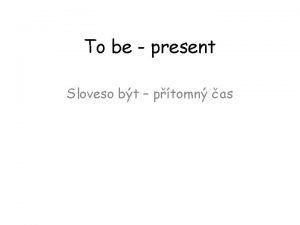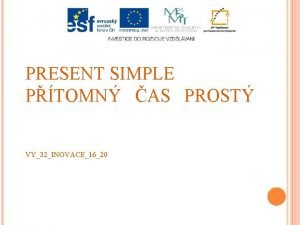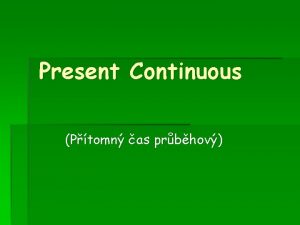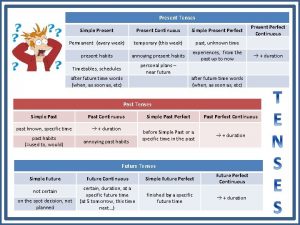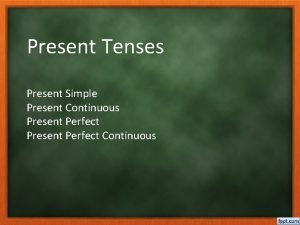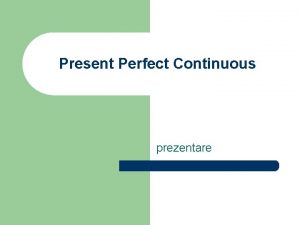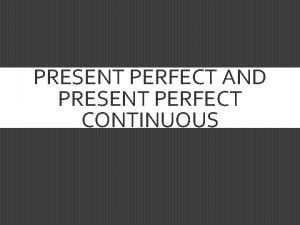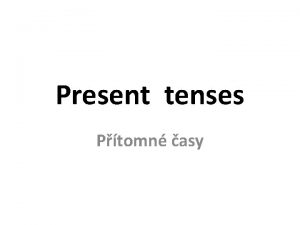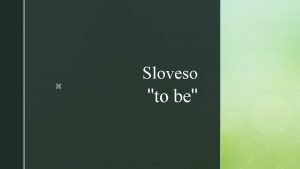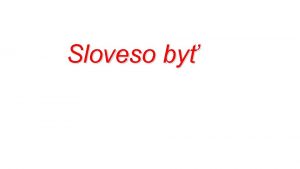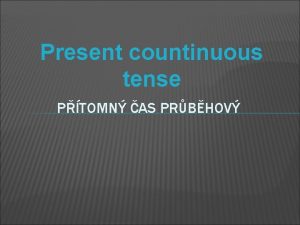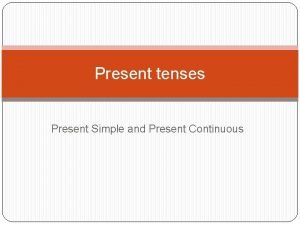To be present Sloveso bt ptomn as Sloveso

To be - present Sloveso být – přítomný čas

Sloveso „být“ • Patří do skupiny sloves sponových. • Významově chudé sloveso. • Stejně tak jako např. become, remain, turn, seem…

Sloveso „být“ v průběhových tvarech • Používáme v přítomném a minulém čase průběhovém. • Present continuous – She is swimming. • Past continuous – She was watching TV.

Sloveso „být“ jako plnovýznamové sloveso • Vedle sponových, významově chudých sloves může sloveso být plnit funkci slovesa plnovýznamového. • Jedná se o doplnění slovesa v příslovečném určení. • She is from Prague. • Zde sloveso „být“ nemůže být nahrazeno jiným slovesem.

to be - affirmative I He/she/it We/you/they • am on holiday. • ´m on holiday. • is at home. • ´s at home. • are in Prague. • ´re in Prague.

to be - negative I He/she/it We/you/they • am not at school. • ´m not at school. • is not here. • isn´t here. • are not at the cinema. • aren´t at the cinema.

to be - question You are at home. • Are you at home? • Yes, I´m. / No, I´m not. He is at school. • Is he at school? • Yes, he is. / No, he isn´t. They are at the cinema. • Are they at the cinema? • Yes, they are. / No, they aren´t.

Děkuji za pozornost Autor Bc. Markéta Hupková
- Slides: 8
